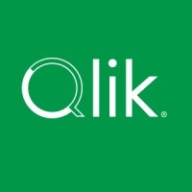

Pentaho Data Integration and Qlik Talend Cloud are competitors in data integration. Pentaho holds an edge in cost-effectiveness due to its open-source model, while Qlik Talend Cloud is favored for its scalability and integration, despite a higher cost.
Features: Pentaho Data Integration offers an intuitive design, supporting various data formats such as big data technologies and its visual drag-and-drop interface enhances usability for non-experts. Qlik Talend Cloud provides flexibility in deployment environments and a wide range of connectors, enhancing its integration capabilities within diverse systems.
Room for Improvement:Pentaho can focus on reducing bugs and improving real-time data processing. Enhancing logging and reporting, and integration with modern data environments like Google Cloud are suggested areas. For Qlik Talend Cloud, users recommend optimizing memory usage and component integration, particularly when deployed on cloud platforms to address issues of stability and performance.
Ease of Deployment and Customer Service:Pentaho supports flexible deployment across on-premises and hybrid clouds, though its community edition relies on community guidance without vendor support. Qlik Talend Cloud stands out in support with dedicated customer service, but some users experience delayed response times. The product's flexibility across public, private, and hybrid clouds is a noted advantage, although user feedback on deployment varies.
Pricing and ROI:Pentaho’s free Community Edition provides cost efficiency, making it suitable for budget-conscious businesses, translating into significant ROI by saving on ETL development time. Qlik Talend Cloud’s pricing is higher in alignment with its comprehensive features and enterprise-level offerings, which lead to reduced ETL development time and improved operational efficiency despite the higher initial cost.
I have seen a return on investment; my team was able to stay extremely small even though we had a lot of data integrations with many companies.
I can testify to the return on investment with metrics regarding time saved; we have increased our efficiency by about 20 to 30 percent due to the swift migration processes facilitated by the tool.
It has helped us save a lot of time by automating repetitive data processes and reducing manual interventions.
We achieved around 20% to 30% time savings in the ETL process, reduced operational errors, and improved pipeline stability.
We actually achieved the first 18 months worth of work in the first six months.
24/7 assistance is available for the Enterprise Edition.
take the time to understand our business requirements, offering appropriate recommendations.
Communication with the vendor is challenging
The support team is responsive when we raise issues, and they usually provide clear guidance or solutions.
I would rate the technical support from Talend Data Quality as an 8 or 9.
The customer support for Talend Data Integration is very good; whenever I raise a ticket in the customer portal, I immediately receive an email, and follow-up communication is prompt.
It can be scaled well until you reach a point where you need to perform a lot of operations, and the issue arises when it runs out of memory to handle some data.
Pentaho Data Integration handles larger datasets better.
Pentaho Data Integration and Analytics' scalability is commendable, as it allows us to scale up according to our needs.
By using features like job parallelization and modular design, we can expand our data flows without having to rebuild everything.
Its scalability is good, as Qlik Talend Cloud can handle large amounts of data and grow as needed, especially in cloud environments.
The scalability of Talend Data Integration is good; if it weren't scalable, it wouldn't be reliable.
Performance issues arise due to reliance on a flowchart-based mechanism instead of scripts, which can lead to longer execution times.
I find that version 3.1 is the most stable version I have ever used.
It's pretty stable, however, it struggles when dealing with smaller amounts of data.
We have not encountered many issues with remote engines, and the interfaces are properly developed.
Once the jobs are properly designed and deployed, they run reliably without major issues.
It was not as stable when we were using TAC and on-premise systems, but currently, with Qlik Talend Cloud version 8.3 or 8.1, it is stable.
We should also explore more effective partitioning for parallel processing and fine-tuning database connections to reduce load times and improve ETL speed.
Pentaho Data Integration and Analytics can be improved by working with different environments, specifically the possibility to change the variables, meaning I write my variables only once and can change them for different environments such as production or development.
I also lack the option to use programming languages beyond Python and SQL, and a provision to incorporate Scala code in the scripting component would be beneficial.
On the flip side, that is one of its amazing strengths, as you are not locked into a very rigid way of doing something.
Better cost and resource visibility would help teams optimize their workloads.
It would be great to have more ready-to-use connectors for modern cloud and SaaS platforms.
I use the community version of Pentaho Data Integration and Analytics, and I do not need additional costs.
The setup cost was minimal, and the pricing experience was pretty good.
My experience with Talend Data Integration's pricing, setup cost, and licensing is that it is a bit higher compared to other tools, making it not very affordable.
The license cost has increased significantly, leading many companies to seek more profitable options in the market.
Pentaho Data Integration and Analytics has positively impacted my organization because it meant we didn't have to write a lot of custom API back-end processing logic; it did the majority of that heavy lifting for us.
It automates the data workflow, including extraction, cleansing, and loading into warehouses for BI reporting purposes, while also removing duplicates, validating data, and standardizing formats, enabling real-time decision-making.
Pentaho Data Integration and Analytics has positively impacted my organization because it is easier to use, and my knowledge about this work facilitates the translation from the source to my final system.
By automating daily data loading processes, we reduced manual effort by around three or four hours per day, which saved roughly 60 to 80 hours per month.
We perform profiling prior to data quality and post-data quality, and based on that, we determine how much it has improved to measure the efficiency of Talend Data Quality cleaning tools.
The feature that has made the biggest difference for me in Qlik Talend Cloud is the scheduling and automation, which helps me run ETL jobs automatically without manual work.
| Product | Market Share (%) |
|---|---|
| Qlik Talend Cloud | 2.2% |
| Pentaho Data Integration and Analytics | 1.5% |
| Other | 96.3% |

| Company Size | Count |
|---|---|
| Small Business | 18 |
| Midsize Enterprise | 17 |
| Large Enterprise | 30 |
| Company Size | Count |
|---|---|
| Small Business | 20 |
| Midsize Enterprise | 11 |
| Large Enterprise | 20 |
Pentaho Data Integration stands as a versatile platform designed to cater to the data integration and analytics needs of organizations, regardless of their size. This powerful solution is the go-to choice for businesses seeking to seamlessly integrate data from diverse sources, including databases, files, and applications. Pentaho Data Integration facilitates the essential tasks of cleaning and transforming data, ensuring it's primed for meaningful analysis. With a wide array of tools for data mining, machine learning, and statistical analysis, Pentaho Data Integration empowers organizations to glean valuable insights from their data. What sets Pentaho Data Integration apart is its maturity and a vibrant community of users and developers, making it a reliable and cost-effective option. Pentaho Data Integration offers a range of features, including a comprehensive ETL toolkit, data cleaning and transformation capabilities, robust data analysis tools, and seamless deployment options for data integration and analytics solutions, making it a go-to solution for organizations seeking to harness the power of their data.
Qlik Talend Cloud provides robust data integration tools tailored for efficient management of large volumes, offering real-time data access, Java integration, and custom code capabilities for developers.
Qlik Talend Cloud is known for its extensive connectivity options, enabling seamless integration across different platforms, such as S3, Redshift, Oracle, and SQL Server. The central repository facilitates consistent metadata access throughout organizations, enhancing collaboration. Despite its strengths in advanced monitoring, automation, and user-friendly drag-and-drop interfaces, users face challenges with installation stability, technical support, documentation inconsistencies, and complexities in learning. Performance concerns also include multitasking limitations and excessive memory usage. The platform's licensing costs can be prohibitive for smaller companies, while demands for improved data governance and intuitive code management continue. Its applications in healthcare data parsing, ETL task automation, and diverse data platform integration demonstrate its utility, although there's a constant demand for better scalability and efficient transformations.
What are the key features?In specialized industries like healthcare, users leverage Qlik Talend Cloud for data integration and transformation, aiding in compliance and analytics. Compatibility with cloud and on-premises systems ensures adaptability to complex data tasks, facilitating business application development. Organizations focus on enhanced data ingestion and quality checks for comprehensive solutions.
We monitor all Data Integration reviews to prevent fraudulent reviews and keep review quality high. We do not post reviews by company employees or direct competitors. We validate each review for authenticity via cross-reference with LinkedIn, and personal follow-up with the reviewer when necessary.